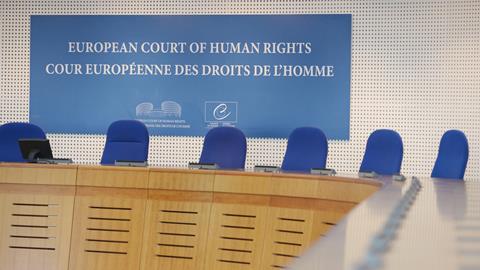Two public law bodies have taken contrasting views over a last-minute intervention by the European Court of Human Rights that led to the first flight taking asylum-seekers from the UK to Rwanda under a controversial Home Office policy being cancelled.
Hours after the Supreme Court dismissed another bid to block the flight, the European court announced that it had granted an urgent interim measure in a case concerning an asylum-seeker who faced imminent removal.
The ECtHR said: ‘In the interests of the parties and the proper conduct of the proceedings before it, to indicate to the government of the United Kingdom, under rule 39, that the applicant should not be removed until the expiry of a period of three weeks following the delivery of the final domestic decision in his ongoing judicial review proceedings.’
Under rule 39 of the Rules of Court, the ECtHR may indicate interim measures to any state party to the European Convention on Human Rights. Such requests are granted on an exceptional basis, when the applicants would otherwise face a real risk of irreversible harm.
Public Law Project, which has brought several high-profile challenges against the government, said the ECtHR’s decision showed why the enforceability of a ‘memorandum of understanding’ between the UK and Rwanda matters.
Arabella Lang, Public Law Project’s head of research, said memorandums of understanding are simply ‘political assurances’.
‘If the government had chosen a treaty instead, it would have been published in advance, been scrutinised by parliament, and could have included binding rules on what happens if the arrangements were breached,’ she added. ‘An important feature of the relationship between the MoU and the ECHR is that the MoU does not override the UK's existing obligations under binding international treaties.’
However, right-leaning thinktank Policy Exchange’s Judicial Power Project said in a research note that the ECtHR’s intervention was a ‘remarkable abuse of judicial power, which discredits human rights law’.
Judicial Power Project said: ‘It is intolerable that the UK’s freedom to deport unlawful asylum-seekers is to be suspended, possibly for years, on the say-so of one (anonymous?) judge before whom the UK did not even have a right of audience.’
A judicial review of the Home Office's policy will be heard next month.
This article is now closed for comment.































33 Readers' comments